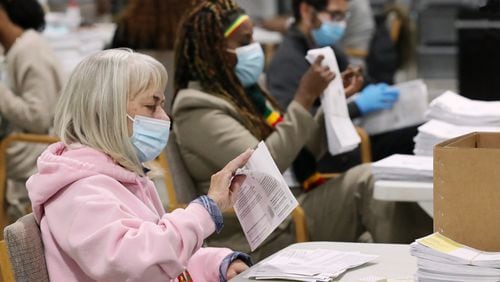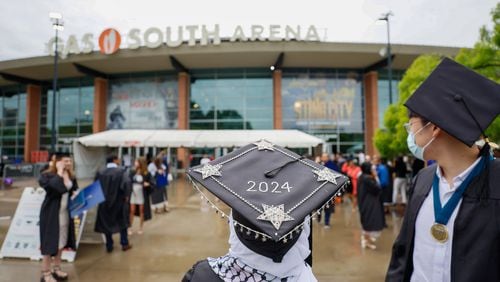The head of the Georgia Bureau of Investigation told the state GOP chairman that there’s not enough evidence to pursue unsubstantiated claims of ballot harvesting in the 2020 elections based on cellphone signals collected by a conservative organization.
GBI Director Vic Reynolds wrote in a letter obtained by The Atlanta Journal-Constitution on Thursday that GPS signals alone, without any witnesses or perpetrators, fall short of meriting a fresh law enforcement inquiry.
“Based on what has been provided and what has not been provided, an investigation is not justified,” Reynolds wrote.
It’s the latest in a string of setbacks to allies of former President Donald Trump who have leveled false accusations of widespread voting fraud while seeking to overturn his narrow November election defeat in Georgia.
Reynolds’ letter to Texas-based True the Vote and Georgia GOP Chairman David Shafer came in response to their allegations that GPS data identified 279 cellphones that had made multiple trips to within 100 feet of ballot drop boxes between Oct. 1 and Jan. 5.
Georgia law prohibits ballot collections in which organizations collect and mail absentee ballots on behalf of voters. Only voters themselves, their relatives, members of their households, or caregivers of voters with disabilities are allowed to handle their ballots.
“What has not been provided is any other kind of evidence that ties these cellphones to ballot harvesting,” Reynolds wrote in the Sept. 30 letter. “As it exists, the data, while curious, does not rise to the level of probable cause that a crime has been committed.”
Without probable cause, the GBI would be unable to obtain a search warrant to examine the same GPS data provided by True the Vote, Reynolds wrote.
The allegation of ballot collections is only one of a wave of unverified claims that Trump lost because of illegal behavior rather than receiving fewer votes than Democrat Joe Biden. Three ballot counts in Georgia showed that Biden defeated Trump by about 12,000 votes, and bipartisan election officials have said there is no evidence of irregularities that would put the outcome in doubt.
In the letter, Reynolds alluded to a third party that Shafer apparently suggested had proof of wrongdoing.
“It has been stated that there is ‘a source’ that can validate ballot harvesting. Despite repeated requests, that source has not been provided to either the GBI or the FBI,” Reynolds wrote.
True the Vote, which last year unsuccessfully challenged the eligibility of 360,000 Georgia voters, didn’t immediately respond to requests for comment. Shafer declined to comment. A GBI spokeswoman verified the legitimacy of the letter but said the agency had nothing more to say about it.
True the Vote purchased GPS data to map travel patterns of 1.2 trillion mobile signals late last year, then mapped those signals to find whether they had come close to ballot drop boxes, according to the organization’s website.
“One way or another, ballot trafficking will soon be exposed on a massive scale,” True the Vote’s website says.
Further evidence to support their claims, however, has not been produced by the organization.
State election officials have conducted multiple investigations into allegations of fraud, including audits and recounts, but none has found organized efforts to change the outcome of the presidential election.
Investigators reported last week that they were unable to find counterfeit ballots in batches identified by Republican vote-counters. The next day, a judge dismissed a lawsuit by plaintiffs who wanted to inspect 147,000 absentee ballots cast in Fulton County for signs of fraud.









